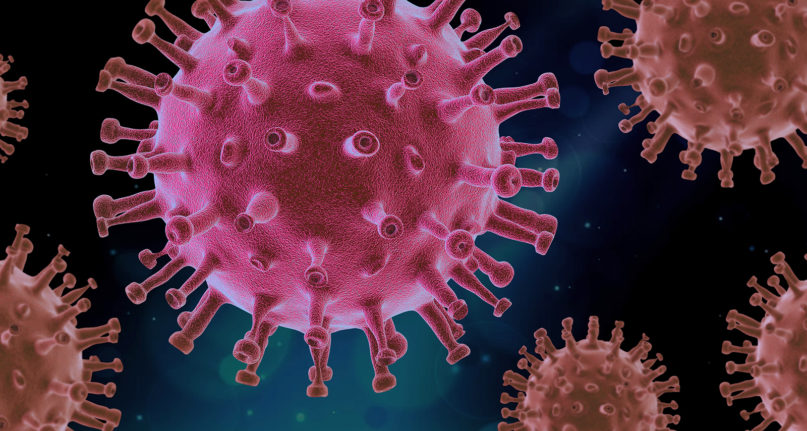(RNS) — Peter Berger once called religion “the audacious attempt to perceive the entire universe as humanly significant.” This might also be the urge behind much of commentary about the novel coronavirus.
The disease, to be sure, has no human meaning in its own right. It is a virus, and like other things in nature, it adapts and multiplies best it can. But humans will not, cannot, view it in the abstract. It means something — political, educational, moral — to us.
Mostly, it reinforces the weaknesses, the cracks, in human institutions. Whatever you think is wrong with the world, the coronavirus exposes the underlying weakness. It is a crack in our foundations.
For many on the American left, the virus is about the president. He’s not smart. His administration is incapable. The federal government cannot lead effectively in a complex environment.
This may be true: Plenty of commentators have made this point every single day for the past four years. The coronavirus, at last, is “proof.”
RELATED: Click here for complete coverage of COVID-19 on RNS
For some on the right, the meaning is even more insidious. The virus, at least at first, was a hoax, unleashed to thwart President Donald Trump, or America, or freedom. If you believe the world is about us and them, then the virus is about what they are doing to us.
For educators like myself, the coronavirus exposes social disparities and underinvestment in education. Students were sent home; some students can learn from home. They have computers, tech skills, high-speed internet and parents who will hold them to it. Other students have none of these things. The coronavirus means insufficient resources and preparation.
The Democratic debates trumpet financial inequality. Guess what: The coronavirus exposes cracks in our social structure. Some of us have jobs done easily enough from home. Some must go in. Those who can work from home also have plentiful insurance and sick days. Those who must go in often have neither.
Think health care is allocated unfairly? The coronavirus exposes unequal access to care. Think young people are irresponsible? Why, some of them socialized on beaches, flaunting their healthy immune systems. Think your state needs voting by mail? Turns out now is the time to institute it.

An illustration of the coronavirus. Image by PIRO4D/Pixabay/Creative Commons
Coronavirus has even been called an indictment of our whole way of life. Whether you think the problem is too much individualism or too much enforced community, coronavirus means our chickens have come home to roost.
The reaction was predictable. Most notably, AIDS was moralized and politicized from day one. It could never be just be a blood-borne pathogen; it was always about humans, their choices and their institutions.
It is pointless to suggest that people stop doing this. We are meaning-makers. Our institutions — economic, educational, political — are social constructs. They are human attempts to bring meaning and order to our activities; even when they are robust, they are imperfect. Stress inevitably pulls back the curtain and leaves us all a little exposed.
Perhaps in these stressful times a little humility is in order. The first moral lessons people draw from crises usually confirm the biases and opinions they already hold. It’s a rare person whose first reaction is, “Hey, this challenges what I already thought.”
But over time, with humility, learning happens. We all learn who our friends are and where are true strengths and weaknesses, individually and together, really lie. When events don’t fit our life narratives, gradually we make them fit — sometimes by changing our memories of the events, sometimes by changing our narratives.
RELATED: How to survive a pandemic, spiritually and charitably
Some people, especially health care professionals, will be stretched to breaking by the new realities, but some of us have newfound time on our hands. Many will use this time to reinforce the foundations of the walls they try to build around themselves, to plaster over the cracks.
But that’s not the only choice. This could be a unique opportunity to listen to other voices, to learn how others view the world, to open ourselves to other possibilities. As Leonard Cohen wrote, “There is a crack, a crack in everything, that’s how the light gets in.”
The point is not that we should avoid drawing lessons from this crisis. We should and we will. Nor is it that we must accept wrongdoing or mismanagement by government, business, or anyone else. We can’t and we won’t.
But here’s hoping our lessons go beyond “We were right and they were wrong.” Being closed off offers us all a chance to open up.
(Arthur E. Farnsley II is associate director of the Center for the Study of Religion and American Culture at Indiana University-Purdue University Indianapolis. The views expressed in this commentary do not necessarily represent those of Religion News Service.)





